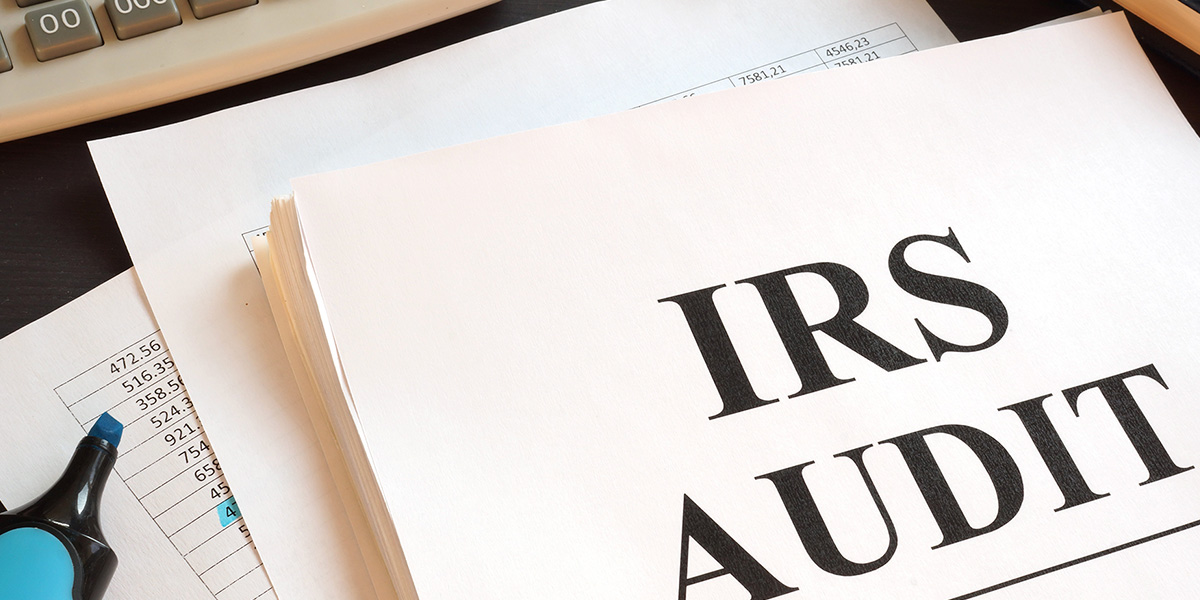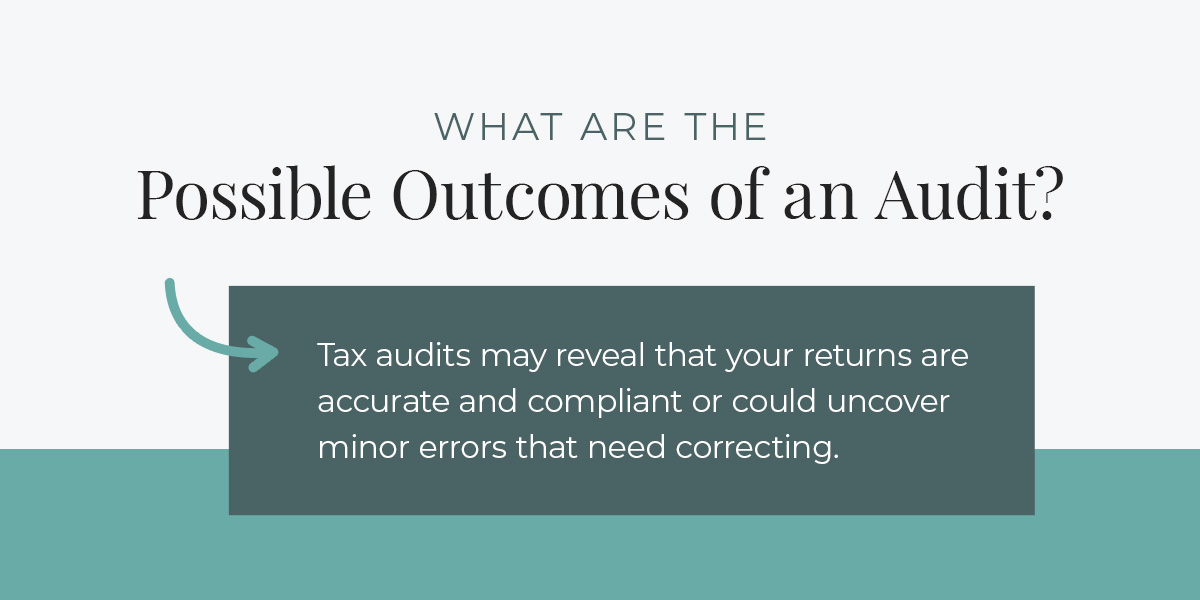
The primary objective of the federal and state tax agencies in identifying and selecting returns for examination is to promote the highest degree of voluntary compliance. However, auditing processes can be daunting. Tax laws are complex, and failing to comply could result in sanctions or the payment of substantial taxes.
While tax audits seldom occur, it is crucial to prepare and handle the process carefully when they do. The process can be long and exhausting, but a tax professional can help. Also, learning the nitty-gritty places you in a better position.
A tax audit is a process where the IRS or state tax entity examines an individual’s or business’s tax return to verify that the information reported is accurate and compliant with the law. The tax agency reviews the taxpayer’s tax filing and financial documents to determine whether taxes were correctly paid. While there is a negative perception of tax audits, the process is crucial to the tax authorities.
Admittedly, tax audits can be intimidating. However, it is essential to remain calm if you receive a notice. If you have any challenges, contact a professional for assistance. Tax attorneys, enrolled agents and certified public accountants (CPAs) can review your financial information and guide you through the process.
The IRS may notice an area of concern on your current tax return or may decide to audit returns from previous years. They review and substantiate the information on your return, such as income level and any deductions. Usually, you will receive a notice in your email, at which point it would be helpful to call a tax professional. Tax professionals can guide you through the process and communicate with the tax examiner on your behalf.
Once an audit is conducted, the IRS files a report. You have 30 days to accept or reject their findings. If you reject, you are protesting the examiner’s decision. If there’s no resolution on the deficiency amount, the IRS issues a Notice of Deficiency. This gives you 90 days to challenge the findings and petition the tax court.
The goal is to reach an agreement and have a final assessment. Once this is done, you have payment options, including an installment agreement. Then, the collection phase begins.
There are three types of IRS audits:
An IRS mail audit involves correspondence by mail instead of face-to-face interactions. It is often used to resolve minor issues. For example, the tax agency may use this procedure to request missing information, such as unreported income or evidence of claimed deductions and expenses. Mail tax audits are deadline-oriented but simple and less intrusive. They often result in a change to the tax return.
In-office tax audits are slightly more serious than mail-in audits and tend to be more in-depth than others. If you face an office audit, the IRS or state tax entity is most likely looking for improper deductions or underreported income.
During this tax audit, you’ll meet with a tax auditor referred to as a Tax Compliance Officer. This auditor will discuss your tax return with you and inspect your records. Office audits are conducted to ensure you are reporting your income accurately and paying the correct amount of tax. You may need to provide some paperwork to support your federal or state tax return.
In a field audit, you will meet with a tax agent known as a Revenue Agent. This meeting could occur at your place of business, home or the tax preparer’s office. Field tax audits revolve around more complicated issues and include a thorough investigation of your belongings and your home or business. This type of audit comprehensively reviews your entire financial record.
The tax agent will generally request your accounting records and bank statements during a field audit. If you don’t provide these documents to the agent, they will likely obtain them from your accountant or bank. The agent will examine your lifestyle and compare it against your reported income. If the IRS believes your lifestyle exceeds your income, they may assume you have unreported income.
You will know the time and date of your field audit, as it will be listed in the letter from the tax authority. These tax audits vary in length, depending on:
Tax audits are relatively uncommon, but they do happen. According to the IRS, during the 2023 fiscal year, the agency closed 582,944 tax return audits. For returns filed for 2013 through 2021, the IRS examined 0.74% of corporation and 0.44% of individual returns filed through the end of the 2023 financial year. That means the IRS targeted more businesses for audits than individuals.
In addition to federal audits, state tax entities conduct audits. Consequently, the chances of being audited by either the federal or state tax agency or both are slightly higher than the change of an IRS audit alone. Remember, any taxpayer can be audited, although individual circumstances or the nature of your business can make you a prime target. Common triggers include returns:
Regardless of the situation, prepare adequately to avoid any inconveniences.
The IRS uses several methods to select taxpayers for audits, including the following:
One way you could be selected for an audit is by random selection, often based on a statistical formula. The tax agency compares the federal tax return with the norms for similar returns. These norms are created from audits of a statistically valid random sample of returns. You are usually on the list to get audited if you have an out-of-the-norm tax return. The number of people the computer chooses for the tax audit is always much larger than the list of people who actually get audited.
Another way you could be selected for an IRS audit is if you have issues or transactions with another taxpayer, such as a business partner or investor, who was chosen for an audit. Other common triggers include:
Ensure your taxes are filed correctly — all the numbers must match and add to your forms. It may seem simple but always double-check. One of the most common mistakes the IRS sees on a federal tax return is incorrect math.
Do not round up numbers or guess if you’re not sure. Also, consider filing online instead of paper. Paper-filed returns often have typos, which may suggest that other parts of the return could be inaccurate. If you take deductions on your tax return, ensure you have the proper documents to help back up those deductions. Lastly, filing your tax return late does not help you avoid being audited. The IRS can audit anyone for up to three years after the return is filed, not when it is due.
The tax agency will usually send a letter indicating that you have been selected for a tax audit. Receiving notifications by email or phone call is unusual. The letter will include instructions on how to proceed and provide contact information if you need to contact someone at the tax agency. The request will be for a paperwork audit, an in-office audit or a field audit, but you may request your preferred option. It is essential to follow the instructions and collect the required documents.
The notice will also indicate the periods and items subject to the tax audit and the deadlines for submitting the requested documents. The IRS uses several letters to inform taxpayers about pending audits, but the most common is Notice 566-S.
The audit process can last a couple of months, but there are no time limits. The timeline depends on factors like:
Other factors like contesting or appealing the audit can also lengthen the auditing process. At all times, remember to maintain organized personal and business records, as that can help prevent audits and reduce delays.
The primary statute of limitations is three years. However, the IRS can go back six years when investigating a significant error. Although the federal tax agency’s audits usually consist of tax returns filed within the last two years, you must keep the records for the past three years. Retaining records for up to six years is ideal, considering the IRS can review records up to that period.
It is essential to prepare adequately for a tax audit, and the following steps can guide you:

Tax audits may reveal that your returns are accurate and compliant or could uncover minor errors that need correcting. In the latter case, the tax agency might direct that you pay the outstanding amount. In rare cases, they may find they owe you a refund.
You can respond to the audit’s findings in one of three ways:
If the auditor determines you haven’t paid enough in taxes, you may face penalties in addition to your tax bill. The common reasons are that you:
If you disagree with the examiner’s decision and feel you have accurate returns, you can ask for an audit reconsideration before you pay anything. If you pay the taxes and penalties and later decide to disagree with the decision, you can request a refund. Also, if you request an audit reconsideration and the tax agency denies it, you can request an OIC. Although chances of approval are low, an OIC allows you to settle your tax burden for a fraction of what you owe.
The penalties vary depending on your income and the seriousness of the situation. Here are some examples:
The tax authority can add penalties to the taxes you already owe. You could face a 20% to 40% penalty for the error on your tax return. The percentage is based on the severity of the error. For serious cases such as fraud, you could face up to a 75% penalty.
If you have a sizable tax debt you cannot pay, the tax authority has the right to seize your property. They can then sell it to cover the money you owe if you don’t have limited liability protection.
This severe penalty is reserved for the most serious cases of tax evasion. Business owners who purposely commit fraud to avoid paying taxes can face up to five years in jail, steep fines or both. Fines in the most severe cases can range from $250,000 to $500,000 for corporations. Fraud and negligence are very different things. If the IRS finds a mistake on your tax returns, they will determine if it’s fraud or negligence.
In most cases, the answer is yes. It’s in your best interest to try to pay any penalties promptly. However, if you feel there’s been a mistake, you can file a dispute of the examiner’s findings and any changes the IRS made to your tax return.
In 2024, the IRS introduced the Taxpayer Bill of Rights to help people understand their rights. There are 10 rights in total, which also apply to audits:
In addition to the rights listed above, there are others to consider. For example, you can claim new deductions you did not initially claim and request assistance from the IRS national office on technical issues. Also, you can request an explanation of how the process will work. Contact a tax professional immediately if you encounter any challenges or need assistance.
The federal and state tax entities request documentation that supports your tax return claims. These typically include:
Try to organize all of your information by year and type of document. Include any information that details relevant transactions. If you have questions about the documentation you need, contact the auditor for assistance.
If you are chosen for an IRS audit, there are some things you need to do or avoid. Here are some examples:
Below are additional tips to consider during audits:
Here are answers to some commonly asked questions:
The documents you need for an audit can vary by the type of audit you’re going through and the agent conducting the audit. The IRS agent will tell you directly what items and paperwork they need. This list can include hard copies of documents or electronic ones. Ask your agent what is acceptable. The typical documents the IRS will demand in a tax audit are:
The law requires you to keep all records you used to prepare your tax return for at least three years from when you filed the tax return.
With any delivery service you use, you can request confirmation that the IRS has received it. You can also contact the agent you are working with to see if they got your response or documents. If they don’t receive your documentation, you could face penalties or have collection action taken against you.
Navigating tax audits can be challenging. Considering the complexity and possible implications, you must partner with an experienced tax professional to guide and represent you. The team at Polston Tax is knowledgeable in federal and state tax laws and has handled complex cases.
Polston Tax has assisted individuals and businesses since 2001 by providing efficient services. We are accomplished tax attorneys and other professionals and have enormous resources available to our clients. Do you want to learn more or need help urgently? Contact us now to schedule your free consultation!
